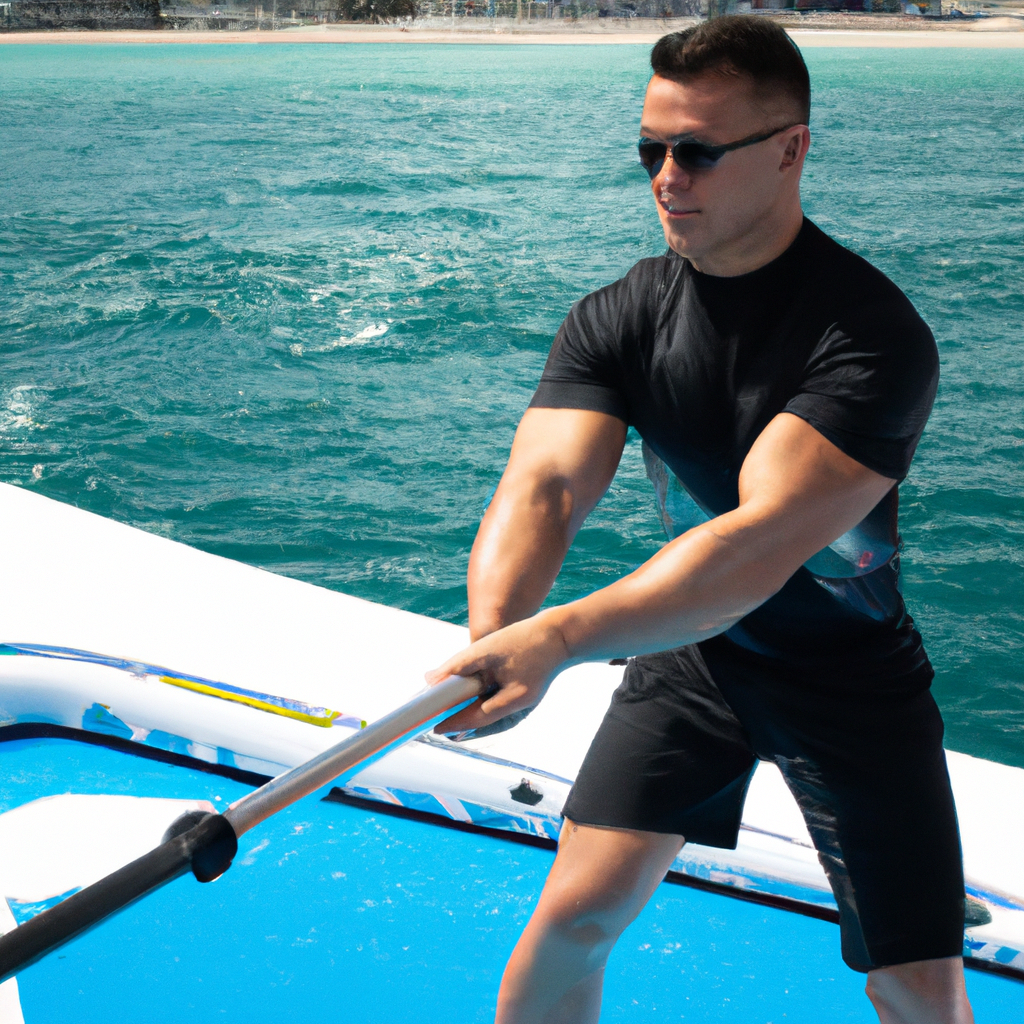Comprehensive Preparation for Nautical Sports: Physical Strengthening, Mental Management and Essential Nutrition

Water sports are an exciting challenge that attracts many fitness and adventure enthusiasts. These sports, which include activities such as surfing, rowing, sailing and diving, require not only special skills but also solid physical and mental preparation. This article aims to provide a complete guide on how to prepare for demanding water sports, starting with understanding its intrinsic demands, through strategies to strengthen your physical condition, manage stress and maintain solid mental health, and finally, the importance of continuing proper nutrition and good rest. Whether you are a beginner in water sports or a seasoned veteran looking to improve, this article aims to prepare you to excel and fully enjoy your water sports activities.
- 1. "Understanding the demands of water sports: A first step towards preparation"
- 2. "Strategies to strengthen your physical condition for water sports"
- 3. "Maintaining mental health: Stress management and relaxation techniques for nautical athletes"
- 4. "The importance of nutrition and rest in preparation for water sports"
1. "Understanding the demands of water sports: A first step towards preparation"
Understanding the demands of water sports is essential before diving into any type of training. These sports are known for requiring a unique combination of physical and mental skills. Physically, athletes must be in exceptional shape, as these sports are typically high-intensity and require a high level of endurance. Additionally, water conditions, which can change rapidly, require continued physical adaptability. On the mental side, water sports require concentration, strategy, the ability to make quick decisions and a strong resistance to stress. Therefore, a good understanding of these demands is the first step in properly preparing for water sports.
2. "Strategies to strengthen your physical condition for water sports"
Strengthening your fitness for water sports requires a specialized training plan that focuses on endurance, strength and flexibility. Water sports often require intensive use of the core and upper body muscles, so you should incorporate exercises such as push-ups, pull-ups, and deadlifts into your training routine. Swimming is also a great way to improve cardiovascular endurance and muscle strength throughout the body. Additionally, high-intensity interval training, also known as HIIT, can be very effective in increasing your endurance and lung capacity. On the other hand, activities such as yoga and pilates can help improve your flexibility, balance and concentration, key elements in many water sports. Always remember that consistency and discipline are essential to see significant progress in your physical condition.
3. "Maintaining mental health: Stress management and relaxation techniques for nautical athletes"
Maintaining good mental health is just as important as maintaining physical health, especially for sailing athletes who face high-pressure and high-stress scenarios. Stress management is essential to avoid burnout and maintain optimal performance. Athletes can use a variety of techniques to manage stress, such as meditation, yoga, deep breathing, and visualization. These techniques not only help reduce stress levels, but can also improve concentration and focus, which is essential in water sports where a small mistake can have big consequences. Additionally, athletes should make sure they have time to relax and decompress outside of the water. Spending time with friends and family, reading a good book, or simply taking a hot bath can be effective ways to relax. Ultimately, effective stress management and relaxation are key ingredients to success in water sports.
4. "The importance of nutrition and rest in preparation for water sports"
Nutrition and rest are two fundamental elements in preparation for demanding water sports. Proper nutrition provides the energy needed to maintain long endurance and rapid recovery after training. Water sports generally require a lot of energy, so a diet rich in carbohydrates, proteins, fruits, vegetables and fluids is essential. On the other hand, rest also plays a crucial role in physical and mental preparation. It is during sleep when muscles recover and strengthen. In addition, a good rest improves concentration and mental focus, key factors in sports that require precision and coordination. In short, adequate nutrition and sufficient rest are vital to perform at your best in any water sport.
